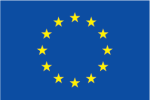Research Integrity incorporates the foundations of high-quality research and/or research excellence, that are fundamentally linked to the perception, development, establishment and incorporation of Responsible Conduct in Research (RCR) and Research Ethics (RE) standards and/or guidelines. These guidelines reflect what is commonly known as best practices in science that a researcher is expected to learn and implement, when conducting his/her research.
Research Integrity
What is Research Integrity and why it matters?
The ultimate goal is to produce scientific knowledge that underlies principles of accuracy, honesty, reproducibility and transparency.
Furthermore, the scientific knowledge is expected to advance society and produce goods to people (European Code of Conduct for Research Integrity Guidelines – ALLEA, 2017).
Research Integrity relates to all the stages of the research process, namely from the study design through the methodology applied, the data collected and analysed, the interpretations made and the way results are presented, where reflections on the social impacts of the research should always be taken into account. Consequently, the revised European Code of Conduct for Research Integrity (ALLEA, 2017) defines Research Integrity under 4 fundamental principles that aim to guide researchers in their work along with their engagement with the practical, intellectual and ethical challenges arising during their research.
These four principles are:
In regard to the quality of the research. This is reflected in the study design, the methodology applied, the analyses made, and the resources used.
Regarding the way research is developed, undertaken, reviewed and how it is reported and communicated, enclosing key concepts, namely, transparency, fairness, full and unbiased way.
Concerning researcher and non-researcher peers and colleagues, but also to the object of the research, either by human participants, animals, the society, ecosystems and the natural environment, and the cultural heritage.
Related to the research from the idea to publication. Also, accountability in research focus on its management and organisation, where appropriate training, supervision and mentoring are key for its wider impacts.
For use in the INTEGRITY project we have developed a Glossary for Research and Academic Ethics and Integrity based on Glossary for Academic Integrity. ENAI Report 3G [online]: revised version, October 2018. It contains only the concepts and definitions that will be explored within the INTEGRITY project and that are relevant to the target audience (i.e. students, early and senior researchers and other academic staff).
We strongly encourage the readers to also explore the ENAI’s Glossary for Academic Integrity — visit website.
This project received funding from the European Union’s Horizon 2020 research and innovation programme under Grant Agreement No 824586. The European Commission’s support for the production of this material does not constitute an endorsement of the contents, which reflect the views only of the authors, and the Commission cannot be held responsible for any use which may be made of the information contained therein.

